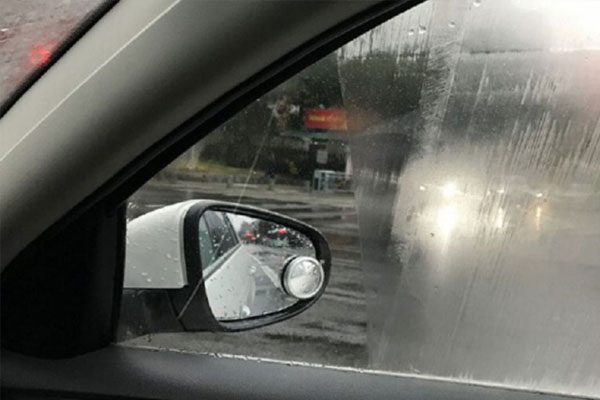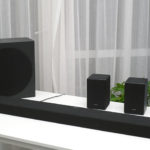The weather in the North is entering the humid season. These days, the humidity in the air reaches about 90%, causing water vapor to condense and accumulate on the surface of objects.
The moist environment is favorable for harmful bacteria and fungi to thrive. It not only affects human health but also causes faster deterioration of objects, including cars.
According to experts, due to prolonged drizzling rain, the humidity in the air is very high, and the concentration of acid and other corrosive substances, along with industrial dust and dirt in the rainwater, is much higher than in summer rain. These impacts make cars more prone to damage.

Specifically, during the humid season, the car body’s shell oxidizes and corrodes faster. The high humidity in the air accelerates the oxidation process even more. Therefore, if you frequently travel in wet drizzly weather, your car will age and deteriorate quickly.
In addition, by observing with the naked eye, we can see that during the humid season, the surface of the car is often covered with a layer of dew. This is the water condensation on the car, which limits visibility and poses a risk when driving.
Moreover, prolonged wetness of a car will have a negative impact on other parts such as the seats, steering system, car floor, and most importantly, the engine and electrical system. These parts are easily corroded or damaged due to moisture, significantly reducing the lifespan of the vehicle.
With extended wetness, cars provide a favorable environment for the growth of bacteria and mold, causing unpleasant odors.
Therefore, to address these issues, drivers need to properly maintain and care for their cars during the extended humid season. Experts suggest some solutions:
Park in a dry and covered area
You should park your car in a dry, ventilated area. This is the best way to keep your car away from corrosive substances and oxidation. If you have to park outside, use a car cover.
Clean the car regularly
Regular cleaning slows down the oxidation process, keeping the car clean, which is also good for the health of the occupants. If you clean the car at home, first tidy up the interior by arranging items neatly, use a vacuum cleaner to remove all the dust and dirt from surfaces. Then, use a specialized car cleaning solution to clean.
After cleaning the car, use a dry cloth to wipe the entire vehicle, close the doors, and turn on the air conditioning in Dry mode to remove moisture. Also, activate the defogging function to keep the windshield dry and clear.
Regular car washing
Not washing the car because you think it will get dirty after washing is a mistake in the car maintenance process. The mud that stays on the car for a long time has a higher concentration of corrosive substances than rainwater. Although regular car washing does not keep the car clean all the time, it reduces the amount of corrosive substances sticking to the car. Moreover, when the car is regularly washed, the conditions for oxidation are reduced, and rusting is minimized.
Maintain the electrical system and air filter
High humidity causes the electrical system, especially the electrical connections on the car, to oxidize quickly. Therefore, it is not surprising that the car stalls or experiences electrical issues during the drizzly season. In addition, the electrical system is susceptible to short circuits or even fires. To avoid these problems, it is best to regularly maintain the electrical system. Pay attention to the connection and insulation of the wires and connectors.
Furthermore, the air filter should also receive special attention, especially for cars that often travel long distances or in dusty environments. A wet air filter is equally harmful when it accumulates thick layers of dust. Therefore, it is recommended to have the air filter cleaned at least once a month at a maintenance center.
Do not lower the car windows while driving
When driving in humid conditions, lowering the windows will allow the moist environment outside to enter the car. It is best to keep the windows closed, turn on the air conditioning in Dry mode or at an appropriate cooling temperature. Avoid using the heating mode because the water vapor will not evaporate and will instead accumulate even more due to the temperature difference.
Use dehumidifiers and air fresheners
Car owners should equip their vehicles with devices that can effectively dehumidify the air, keeping the car’s interior dry and fresh. In addition, depending on personal preferences, car owners can choose scented objects such as essential oils, coffee bags, or fragrant pineapple to place inside the car.
According to VTC
How to Grill Chicken for Optimal Juiciness and Tenderness
Grilling up chicken that is tender, juicy, and bursting with flavor is easy – and we’re going to show you how! With just a few tips and tricks, you can make mouthwatering grilled chicken every single time. Learn which ingredients to use, which spices to marinate with, and the best cooking techniques to put to use. Get ready to wow your family and friends with delicious grilled chicken!



































